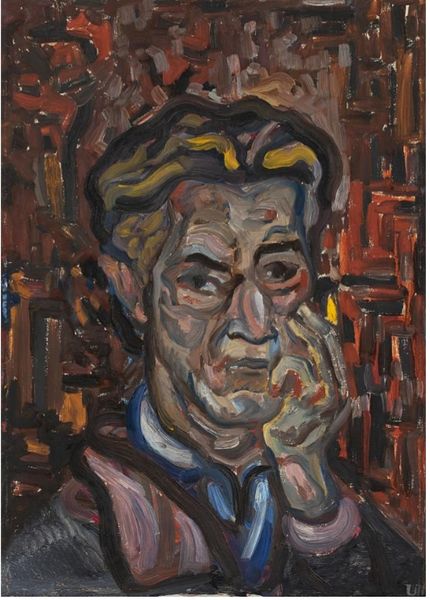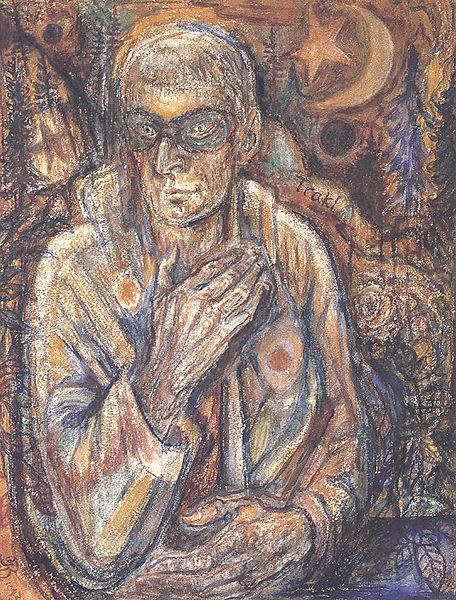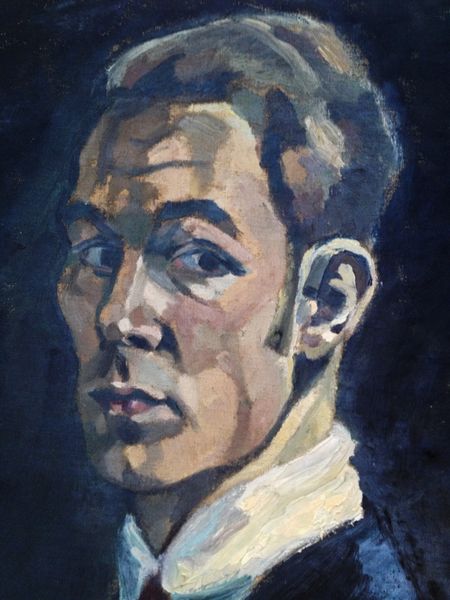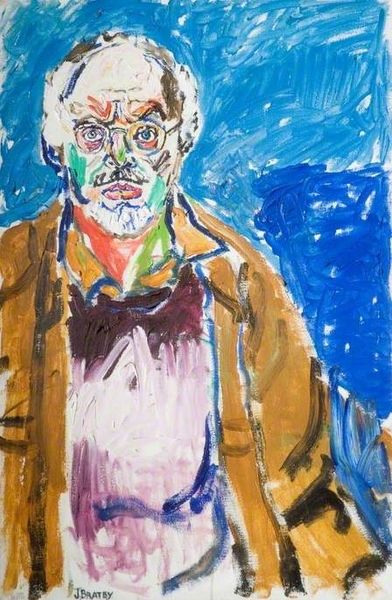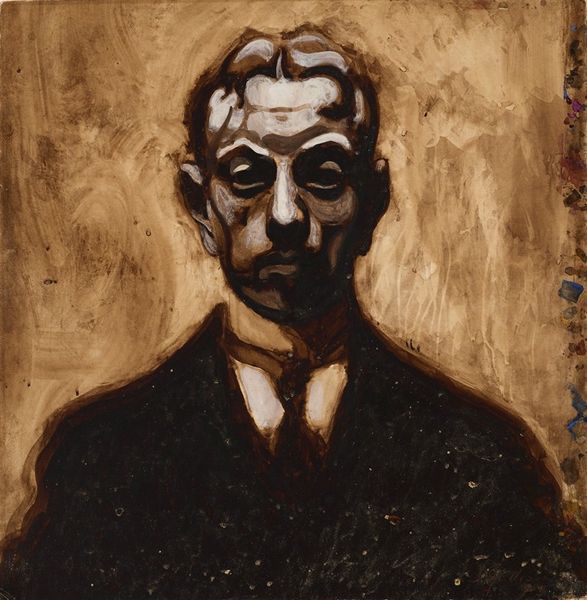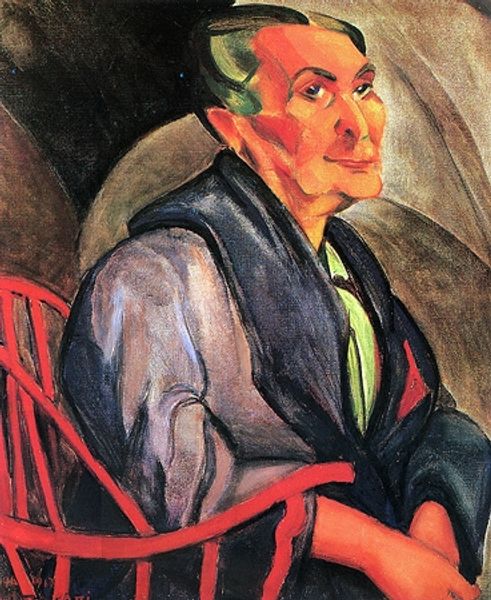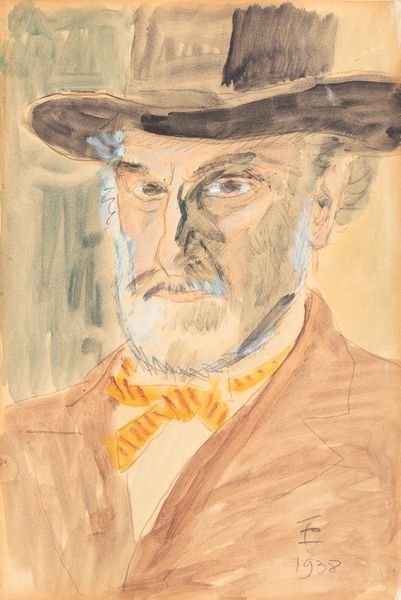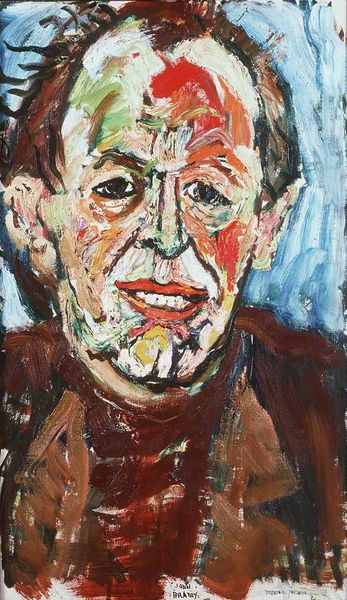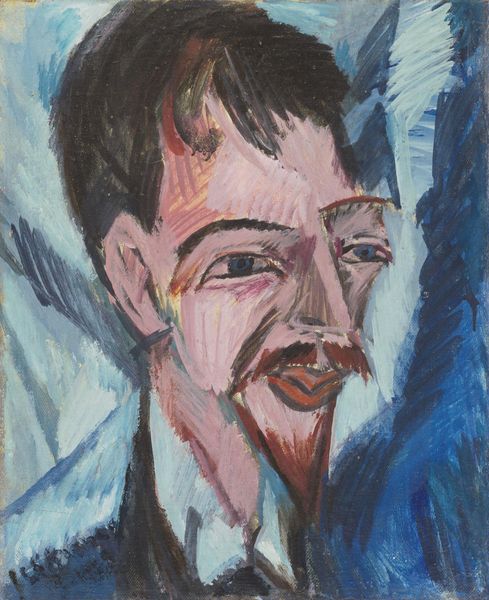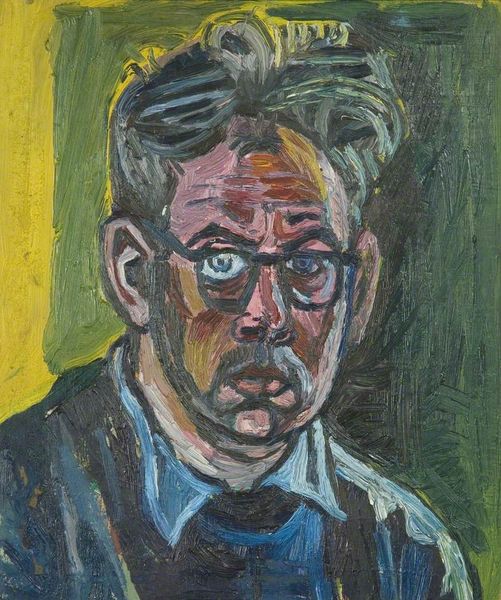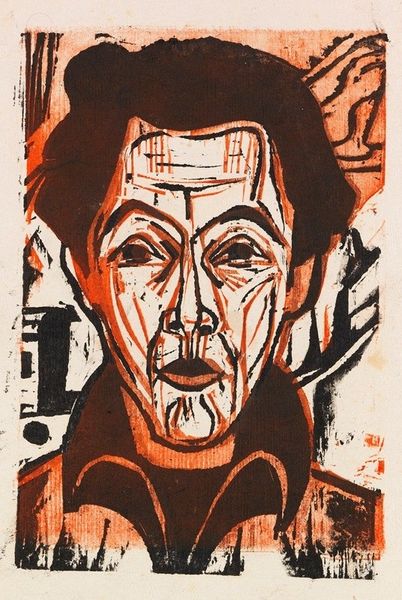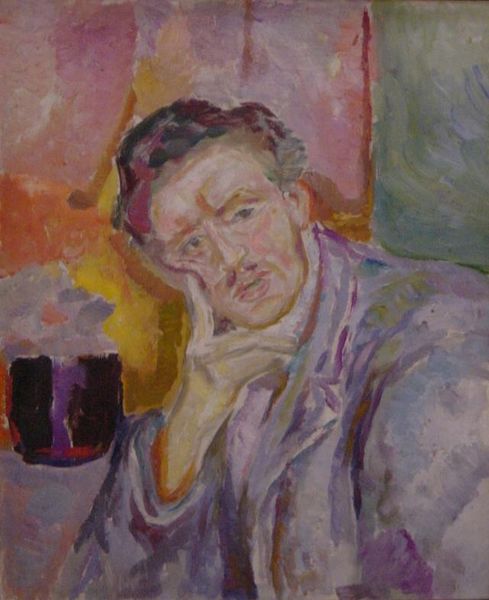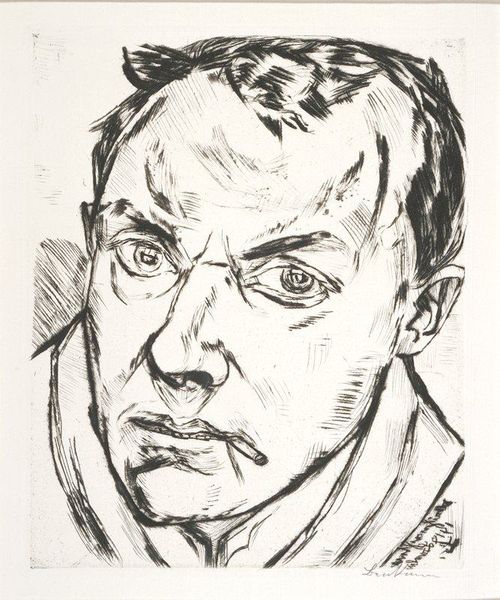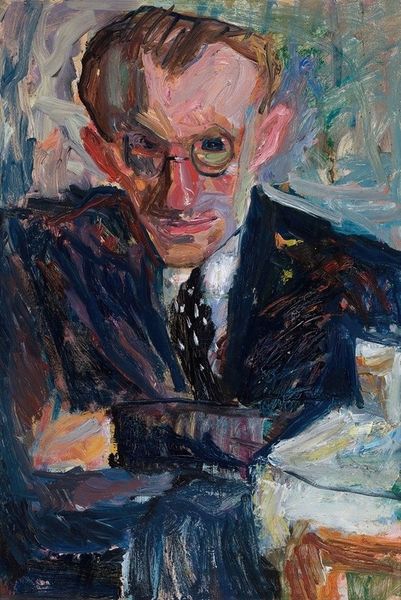
watercolor
#
portrait
#
self-portrait
#
figuration
#
watercolor
#
expressionism
#
modernism
Copyright: Public domain
Editor: This is László Moholy-Nagy’s “Self-Portrait” from 1919, rendered in watercolor. I find it quite striking—almost confrontational with those piercing blue eyes. What's your interpretation? Curator: It's fascinating how this portrait encapsulates a historical moment, reflecting the angst and experimentation of the post-World War I era. Moholy-Nagy was deeply involved with the Bauhaus, a movement dedicated to integrating art, technology, and society. How does the visible fragmentation of form in the face itself relate to this goal? Editor: Well, the broken lines almost seem to suggest a deconstruction of the individual, fitting the Bauhaus's idea of art as a tool for social change and modern life. Is that reading too much into it? Curator: Not at all. Consider the Expressionist roots and the cultural context. The fragmented form could also signify the fractured sense of identity many felt after the war. The steely blue gaze isn't just confrontational, it is perhaps about the search for self in a rapidly changing society. This was when photography gained popularity, and painters were asking, 'What’s our role?' How does this image play into these trends? Editor: Now that you mention the social impact, it does feel like this painting asks us to look into the individual *and* society. Like how personal identity gets constructed from these two factors? Curator: Precisely. The rawness of the medium itself underscores the idea of unmediated self-expression amidst this era of reconstruction. So, thinking about its place, how would an artwork like this challenge the established norms of the art world back then? Editor: By refusing classical standards of beauty and instead pushing for raw, honest reflection on the modern experience? I hadn’t thought about it like that initially. Curator: And remember, that is exactly how avant-garde art carves its place in history and helps change its social and institutional context. Editor: Right, this wasn't just personal; it was political. Thanks!
Comments
No comments
Be the first to comment and join the conversation on the ultimate creative platform.
